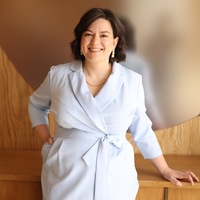Natalia Balyasnikova
York University, Education, Faculty Member
- University of British Columbia, Department of Language and Literacy Education, Graduate Studentadd
- PhD in TESOL (Department of Language and Literacy Education, UBC) with a focus on adult education and community-based learning.edit
Research Interests:
This article describes the process of using an ethnodrama while working with older adults learning English as an additional language. By examining a 4-month-long period of Seniors Drama Club, created to offer theatre-based language... more
This article describes the process of using an ethnodrama while working with older adults learning English as an additional language. By examining a 4-month-long period of Seniors Drama Club, created to offer theatre-based language learning experiences for Vancouver's immigrant senior population, the authors draw attention to the complex learning that occurs at the intersection of drama education and additional language learning. The aim of the article is twofold. First, the authors show the benefits of using adaptable and “living” texts—such as an ethnodrama—in language teaching. Second, the authors argue that framing of language learning as a collaborative theatre project empowers learners to take agency of their language learning and future use. In conclusion, the authors elaborate on some of the promising practices developed as the outcome of this community-based project.
Research Interests:
Research Interests:
In this article, the authors present two case studies that document how NNEST status served as a gatekeeper for Kyrgyz and Russian professionals entering new professional fields in the United States. The findings of both studies suggest... more
In this article, the authors present two case studies that document how NNEST status served as a gatekeeper for Kyrgyz and Russian professionals entering new professional fields in the United States. The findings of both studies suggest that perceived low English language proficiency was the key factor in preventing participants from utilizing their former professional expertise.
Research Interests:
After the fall of the Soviet Union, Russia found itself among nations that experienced an influx of images portraying lifestyles abroad, sometimes viewed as exotic and intriguing. Now, 20 years later, foreign media cultural presence in... more
After the fall of the Soviet Union, Russia found itself among nations that experienced an influx of images portraying lifestyles abroad, sometimes viewed as exotic and intriguing. Now, 20 years later, foreign media cultural presence in Russia is indisputable. It is even more obvious when talking to younger generation, who base their knowledge of Western cultures and societies on Hollywood movies and popular TV shows. At the same time public access to foreign media (such as TV talk shows, news, newspapers and public radio broadcasts) is often limited to Internet or paid TV channels. Many foreign language teachers use media resources in their classes for a variety of reasons, I see them as a source for visual and civic literacy development and potential responsible citizenship encouragement.
Russian educational system recognizes competence approach as a new innovative way of teaching foreign languages, there is a demand for new teaching practices that allow development of multiple literacies, including critical thinking skills. First, I discuss contemporary Russian education, with an emphasis on changing role of English language education, in terms of its civic literacy potential. Second, I present critical literacy approach to teaching a foreign language, placing the emphasis on the importance of participatory action encouragement through education. Third, I present practical examples of using media for critical literacy development along with language objectives. And fourth, I acknowledge challenges that educators face while developing critical literacy and offer some suggestions for overcoming them.
Russian educational system recognizes competence approach as a new innovative way of teaching foreign languages, there is a demand for new teaching practices that allow development of multiple literacies, including critical thinking skills. First, I discuss contemporary Russian education, with an emphasis on changing role of English language education, in terms of its civic literacy potential. Second, I present critical literacy approach to teaching a foreign language, placing the emphasis on the importance of participatory action encouragement through education. Third, I present practical examples of using media for critical literacy development along with language objectives. And fourth, I acknowledge challenges that educators face while developing critical literacy and offer some suggestions for overcoming them.
